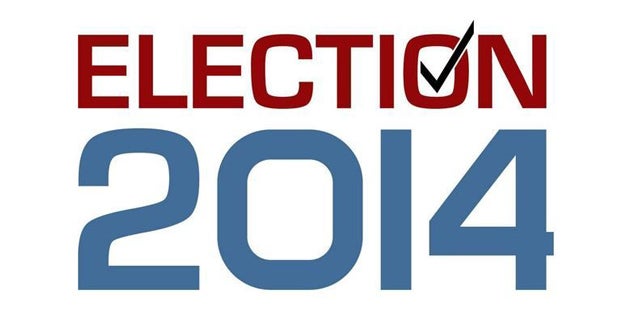 College of Charleston political science majors are forecasting the results of all 36 U.S. Senate races and predicting which party will control the chamber in January.
College of Charleston political science majors are forecasting the results of all 36 U.S. Senate races and predicting which party will control the chamber in January.
Based on their research, the students predict Republicans have an excellent chance of controlling the Senate in the 114th Congress. Class-wide, the most common projection is that Republicans will hold fifty-two seats when the election is over, with Democrats holding forty-seven seats and one independent winning election.
“This experience has really helped the students engage with the class material, foster their critical thinking skills and increase their civic-mindedness,” explains political science professor Jordan Ragusa, who teaches the upper-level class on Congress.
RELATED: Read Ragusa’s Rule22 blog.
“After researching the ads and platforms of the two candidates, I’m absolutely voting this Tuesday!” one student said.
Why Republicans Will Have Control
 According to political science major Andrew Fink, President Obama is a major reason why Republican prospects are so strong this cycle. As Fink notes, “a sitting president’s party has only gained seats in a midterm election if that president has an approval rating of at least mid 60 percent. Notably, Obama’s approval rating is in the 40% range.”
According to political science major Andrew Fink, President Obama is a major reason why Republican prospects are so strong this cycle. As Fink notes, “a sitting president’s party has only gained seats in a midterm election if that president has an approval rating of at least mid 60 percent. Notably, Obama’s approval rating is in the 40% range.”
Senior Nick Sanders agrees, “I anticipate that the only competitive races that Democrats will win, for a number of reasons, will be North Carolina and New Hampshire.”
But, as junior Daniel Beasley points out, “precedent alone is not an adequate measure for predicting the outcome of Senate elections.” Beasley cites Kansas, where the Republican candidate is the one fighting against the anti-incumbent sentiment.
Students: 5 Key Senate Races to Watch
North Carolina
Connor Templeton predicts that Kay Hagan will win her race against Tom Tillis because, while president Obama is unpopular, the Republican controlled state legislature is also unpopular, helping to “equal out” Obama’s low approval rating. Jillian Barry disagrees, predicting a Tillis victory on Tuesday. She points out that Hagan’s lead is within the margin of error and that, as a North Carolina voter, she knows when voters are “hungry for a change.”
Louisiana
In an aptly titled post “Mary Landrieu’s Time Has Come to An End,” Chandler Rowh notes Landrieu’s permanent underdog status. He writes “for the third time in 10 years, Mary Landrieu is running for re-election and for the third time in a row, she is not supposed to win.” In the end, however, he predicts that her days are numbered. Christine Johnson agrees. Johnson, however, points to the importance of Louisiana’s electoral rules as the reason for Landrieu’s fate. Because of the state’s jungle primary, the race is likely to head into a runoff. As she notes: “Senator Landrieu would need New Orleans to turnout in a big way not just once but twice, which will be tough to do.”
Georgia
According to the most recent forecasts, Georgia is among the closest races this cycle. Some forecasts have it listed as a pure “toss up” between Republican David Perude and Democrat Michelle Nunn. William Winningham writes: “While I believe that Nunn does have an outside shot at winning the race, all signs point toward David Perdue as Georgia’s next Senator. Much like other Democrats running for office this year, Michelle Nunn will be trying to get into office in spite of her party affiliation and President Obama’s sinking popularity will not help her chances.”
Arkansas
Perhaps no state reflects the “fundamentals” better than Arkansas. And unfortunately for Democrats, the fundamentals are stacked against Democratic incumbent Mark Pryor. Indeed, Senior Jake Durham notes that Pryor has long odds in his chance at winning reelection. But Durham also cites Cotton’s strengths as a featuring prominently in the race as well. Durham writes: “Cotton is a young, smart, Harvard law graduate, and has all the qualities that make up a high quality candidate…When the polls close on November 4th when you look up at an election map I strongly believe that the state of Arkansas will be shaded in red.”
Kentucky
According to Andrew Johnson, Kentucky is the most interesting race this cycle. In Kentucky, Senate Minority Leader Mitch McConnell is in a difficult fight against the thirty-six year old Alison Lundergan Grimes. Johnson cites money as key to the race’s intritigute. Johnson writes: “Even though McConnell has been up in the poll numbers as of late according to the Economist, the race is incredibly interesting still because of the amount of money that incumbent McConnell has spent on his campaign to defeat a Democrat in a state that is traditionally red. This race matters so much to the political landscape of at least the next two years because if the Republicans take the Senate, which I am predicting they will, McConnell will become the Senate Majority Leader.”




